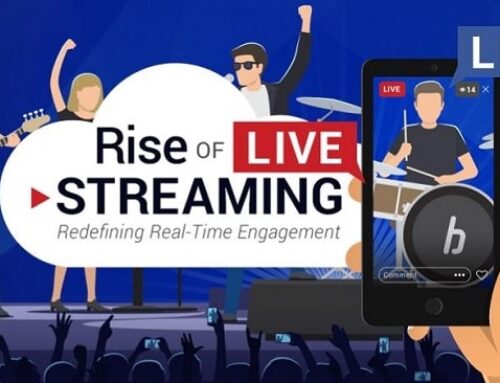In today’s digital landscape, a well-crafted social media marketing strategy has become essential for businesses seeking to establish a strong online presence and engage with their target audience. As a social media marketing manager, your role is to design and execute a comprehensive strategy that promotes the brand, products, and services across various social media platforms. This includes creating engaging content, managing online communities, leveraging influencer marketing, and running targeted advertising campaigns to drive engagement and conversions.
Effective social media marketing requires a deep understanding of your target audience, a strategic selection of the right social media platforms, and a content strategy that resonates with your customers. As a digital marketing strategist, you must stay abreast of the changing landscape of digital marketing, recognizing the benefits of an effective social media presence and the importance of social media analytics in measuring performance.
Key Takeaways
- A comprehensive social media marketing strategy is essential for businesses to establish a strong online presence and engage with their target audience.
- The role of a social media marketing manager involves designing and executing a strategy that promotes the brand, products, and services across various social media platforms.
- Effective social media marketing requires understanding your target audience, selecting the right social media platforms, and creating engaging, shareable content.
- Leveraging influencer marketing and running targeted paid social media advertising campaigns can help maximize your reach and engagement on social media.
- Continuously measuring and analyzing your social media performance is crucial for making data-driven decisions and optimizing your strategy.
Understanding the Importance of Social Media Marketing
In today’s digital age, social media marketing has become an indispensable component of any successful digital marketing strategist‘s toolkit. As a social media marketing manager, understanding the changing landscape of digital marketing is crucial to effectively connecting with your target audience and achieving your business objectives.
The Changing Landscape of Digital Marketing
The rapid evolution of social media platforms has fundamentally shifted the way online community managers and social media content creators engage with consumers. Platforms like Facebook, Instagram, Twitter, and LinkedIn have become the primary channels through which consumers discover, research, and interact with brands. As a social media analytics expert, it’s essential to stay abreast of these changing dynamics to ensure your social media advertising campaigns and social media brand management strategies remain effective.
Benefits of an Effective Social Media Presence
Establishing a strong social media customer engagement strategy can unlock a multitude of benefits for your business. From increased brand awareness and customer loyalty to improved lead generation and sales, a well-executed social media marketing plan can be a powerful driver of business growth. As an influencer marketing specialist, you can leverage the power of social media to reach and engage with your target audience in a more authentic and impactful way.
| Key Benefits of Social Media Marketing | Description |
|---|---|
| Brand Awareness | Increased visibility and recognition of your brand among your target audience through consistent social media presence and engagement. |
| Customer Engagement | Fostering stronger relationships with your customers by actively listening, responding, and interacting with them on social media platforms. |
| Lead Generation | Utilizing social media to attract and convert potential customers through targeted campaigns, content marketing, and lead capture opportunities. |
| Sales and Revenue | Driving sales and revenue growth by effectively promoting your products and services, and facilitating seamless transactional experiences through social media channels. |
| Market Insights | Gaining valuable insights into your target audience’s preferences, behaviors, and pain points through social media analytics and monitoring tools. |
Defining Your Target Audience
As a social media marketing manager or digital marketing strategist, the first step in developing an effective social media strategy is to clearly define your target audience. This involves identifying your ideal customer persona and analyzing the demographics of your target audience across various social media platforms.
Identifying Your Ideal Customer Persona
Creating a detailed customer persona is essential for understanding the preferences, behaviors, and pain points of your target audience. Consider factors such as age, gender, location, interests, hobbies, income level, and purchasing habits to paint a comprehensive picture of your ideal social media content creator or online community manager.
Analyzing Social Media Demographics
Once you’ve defined your ideal customer persona, dive deeper into the demographics of your target audience on different social media platforms. Utilize social media analytics tools to examine factors like platform usage, engagement rates, content preferences, and the best times to reach your audience. This data will help you social media brand management and social media customer engagement strategies that resonate with your target users.

| Platform | User Age | User Gender | User Interests | Engagement Rates |
|---|---|---|---|---|
| 25-54 years old | Balanced | Family, lifestyle, entertainment | High | |
| 18-34 years old | Skewed towards female | Fashion, beauty, travel | Very high | |
| 25-49 years old | Balanced | News, politics, technology | Moderate | |
| 30-64 years old | Balanced | Business, career, industry news | High |
Choosing the Right Social Media Platforms
As a social media marketing manager or digital marketing strategist, the choice of social media platforms is a critical decision that can make or break your social media content creator and online community manager efforts. Not all platforms are created equal, and the ones that work best for one influencer marketing specialist or social media analytics expert may not be the optimal fit for another.
When selecting the right social media platforms for your business, it’s essential to consider factors such as your target audience, the type of social media advertising campaigns and paid social media advertising you plan to run, and your overall social media brand management and social media customer engagement goals.
| Platform | Target Audience | Strengths | Considerations |
|---|---|---|---|
| Diverse, all ages | Largest user base, versatile advertising options, strong engagement | Crowded platform, algorithm changes can impact organic reach | |
| Younger, visual-oriented | Highly visual, strong for influencer marketing, growing advertising capabilities | Predominantly mobile-based, requires high-quality visuals | |
| Diverse, news-driven | Real-time engagement, effective for customer service, brand awareness | Rapid pace, limited character count, requires consistent posting | |
| Professionals, B2B | Ideal for thought leadership, networking, and B2B marketing | Less suitable for consumer-facing brands, requires professional content |
By analyzing the demographics and user behaviors on different social media platforms, you can make an informed decision on which channels best align with your social media marketing strategy and target audience. This strategic approach will help you maximize your social media presence and drive meaningful engagement with your customers.
Developing a Content Strategy
As a social media marketing manager, crafting an engaging and effective content strategy is paramount to your success. This involves understanding your target audience, identifying the most shareable and visually appealing content formats, and consistently delivering high-quality, value-driven posts across your social media platforms.
Creating Engaging and Shareable Content
The key to a successful social media content strategy lies in your ability to create content that resonates with your online community. This could include a mix of educational, entertaining, and inspirational posts that address the pain points and interests of your ideal customer persona. Leverage social media analytics to gain insights into the types of content that perform best, and always strive to deliver value to your followers.
Incorporating Visuals and Multimedia
In today’s fast-paced digital landscape, visuals and multimedia content have become essential for capturing the attention of your target audience. As a social media content creator, consider incorporating high-quality images, videos, infographics, and other visual elements into your content strategy. These elements not only make your posts more engaging but also increase the likelihood of your content being shared across various social media channels.

By developing a comprehensive content strategy that prioritizes engagement, shareability, and visual appeal, you can effectively position your brand as an industry thought leader and foster deeper connections with your social media audience. Remember, a successful social media marketing strategy is built on a foundation of consistently delivering valuable and memorable content.
Social Media Marketing Manager: Maximizing Your Reach
As a
social media marketing manager
, it’s essential to implement strategies that will help you maximize your reach and engagement on social media. Two key tactics to consider are leveraging
influencer marketing
and running targeted
paid social media advertising campaigns
.
Leveraging Influencer Marketing
Partnering with
influencer marketing specialists
can be a highly effective way to amplify your brand’s message and reach a wider audience. By collaborating with influential individuals within your industry or target market, you can tap into their established following and credibility to create engaging, authentic content that resonates with your customers. When executed successfully,
influencer marketing
can drive increased brand awareness, website traffic, and conversions.
Paid Social Media Advertising Campaigns
In addition to organic social media efforts,
paid social media advertising
can be a powerful tool for
social media marketing managers
to reach and engage their target audience. By leveraging the advanced targeting capabilities of platforms like Facebook, Instagram, and LinkedIn, you can create highly personalized
social media advertising campaigns
that deliver your message to the right people at the right time. This can be an effective way to drive website traffic, generate leads, and increase sales for your business.
When implementing these strategies, it’s crucial to work closely with your
digital marketing strategist
and
social media analytics expert
to continuously measure and optimize your efforts. By staying agile and data-driven, you can ensure that your
social media brand management
and
social media customer engagement
activities are having a meaningful impact on your overall business objectives.
Measuring and Analyzing Performance
As a social media marketing manager, digital marketing strategist, or social media analytics expert, continuously monitoring and analyzing your social media performance is crucial for the success of your social media advertising campaigns and social media brand management efforts. By setting realistic goals and key performance indicators (KPIs), you can effectively track the impact of your social media content creator and online community manager strategies, as well as your influencer marketing specialist initiatives and paid social media advertising campaigns.
Setting Realistic Goals and KPIs
Establishing clear and measurable goals is the foundation of any successful social media customer engagement strategy. Work with your team to define specific, time-bound objectives that align with your overall business objectives, such as increasing brand awareness, driving website traffic, generating leads, or boosting sales. Alongside these goals, identify the key performance indicators (KPIs) that will help you monitor your progress and assess the effectiveness of your efforts.
Social Media Analytics Tools
Leverage a range of social media analytics tools to gather data and insights that will inform your decision-making process. From platform-specific analytics dashboards to comprehensive marketing analytics platforms, these tools can provide valuable information about your audience demographics, content performance, engagement rates, and the impact of your social media advertising campaigns. By analyzing this data, you can continuously refine your social media marketing strategy and optimize your content, messaging, and targeting to achieve your desired outcomes.
| Social Media Analytics Tool | Key Features | Pricing |
|---|---|---|
| Facebook Analytics | Audience insights, content performance, ad reporting | Free with Facebook Business Manager |
| Twitter Analytics | Audience demographics, tweet performance, campaign tracking | Free with Twitter Business account |
| Google Analytics | Website traffic, referral sources, goal tracking | Free with Google Account |
| Hootsuite Analytics | Comprehensive social media analytics, sentiment analysis, team reporting | Paid plans starting at $49/month |
Conclusion
In conclusion, developing an effective social media marketing strategy is crucial for businesses looking to establish a strong online presence and connect with their target audience. As a social media marketing manager, your role involves understanding the importance of social media marketing, defining your target audience, choosing the right platforms, creating engaging content, leveraging influencer marketing and paid social media advertising, and continuously measuring and analyzing performance.
The digital landscape has evolved rapidly, with social media platforms playing a dominant role in how consumers interact with brands and make purchasing decisions. By implementing a comprehensive social media marketing strategy, businesses can effectively promote their brand, products, and services, while also fostering meaningful connections with their online community and social media customer engagement.
As a digital marketing strategist and social media content creator, you must stay informed about the latest trends and best practices in the industry. Regularly analyzing social media analytics and adjusting your strategy accordingly will ensure that your efforts continue to deliver tangible results and support your overall business objectives.
Remember, an effective social media marketing approach is not a one-size-fits-all solution. It requires a deep understanding of your target audience, a well-crafted content strategy, and a commitment to continuous optimization and improvement. By embracing the power of social media, you can unlock new opportunities for your business to thrive in the digital age.
FAQ
What is the role of a social media marketing manager?
Why is social media marketing important for businesses?
How do I define my target audience for social media marketing?
Which social media platforms should I use for my business?
How do I create an effective content strategy for social media?
How can I maximize my reach on social media?
How do I measure and analyze the performance of my social media marketing efforts?
Originally posted 2024-05-21 20:35:58.
Originally posted 2024-05-21 20:35:58.










